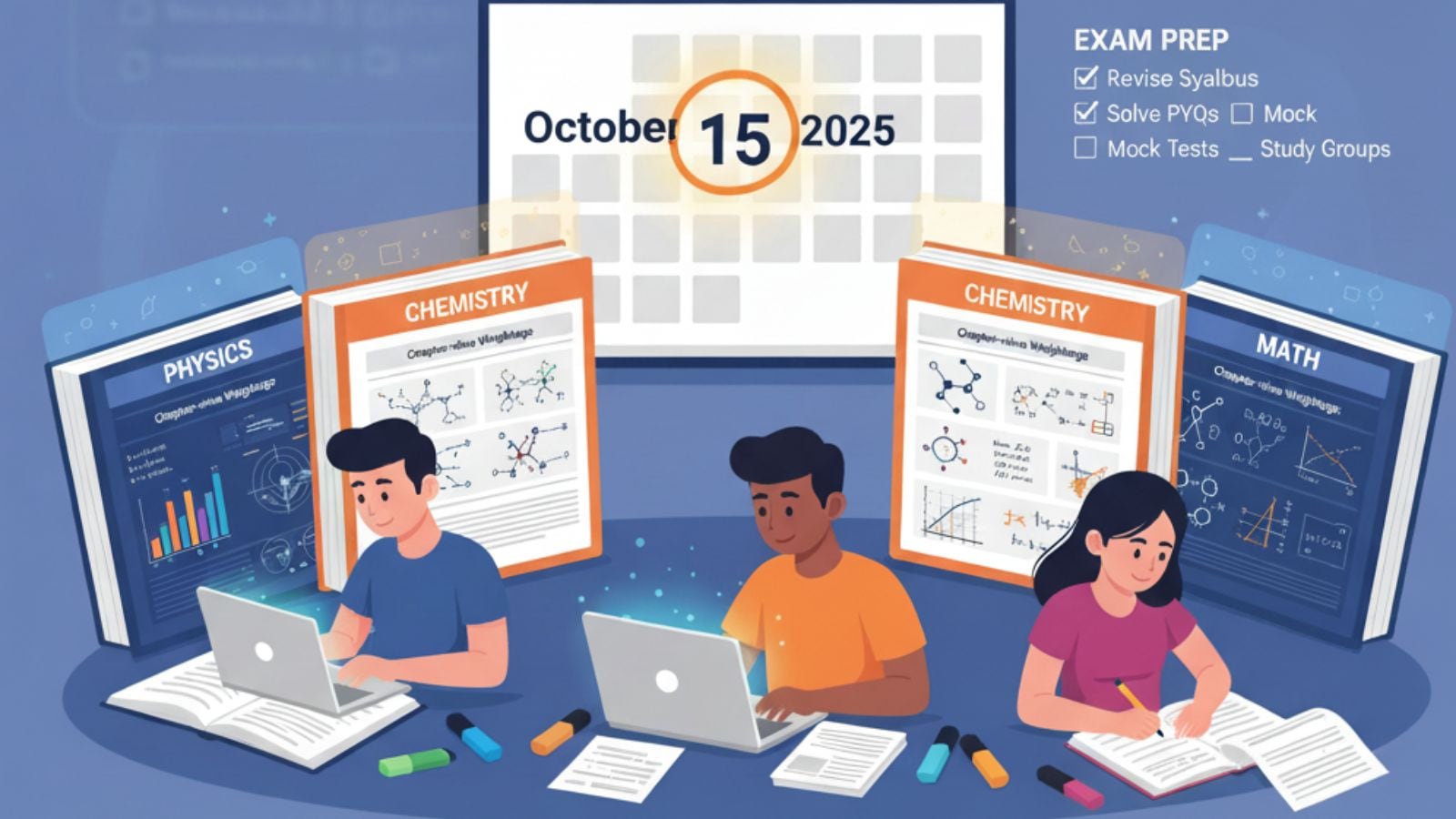© IE Online Media Services Pvt Ltd
Latest Comment
Post Comment
Read Comments
 The paper will likely keep a balanced approach, with conceptual concepts, analytical thinking, and average levels of difficulty in mind. (Image: AI Generated)
The paper will likely keep a balanced approach, with conceptual concepts, analytical thinking, and average levels of difficulty in mind. (Image: AI Generated)— Dr Saurabh Kumar
JEE Mains Chapter-Wise Weightage 2026: As the National Testing Agency (NTA) gears up for JEE Main 2026, candidates are interested to find out which chapters may get extra attention in the next exam. The forthcoming paper patterns are predicted to follow a similar style to that found in the previous two years of JEE Main — 2024 and 2025, as the 14-year chapter-wise analysis proves to be a helpful tool, along with studying the examination process and test trends in 2024 and 2025. The paper will likely keep a balanced approach, with conceptual concepts, analytical thinking, and average levels of difficulty in mind.
Based on examining the paper patterns in the two years of JEE Main 2024 and JEE Main 2025, approximately 60 per cent of the questions posed will examine a conceptual/think and understand the question process, with 20 per cent being factual or memory-driven based evaluation processes, and 20 per cent utilising numerical or calculation evaluation approaches. For the intended JEE Main 2026 paper, we would predict a majority of the questions to be easy to moderate, with 10% being multi-concept based evaluative reasoning questions. The paper will likely pull from both Class XI and XII content, likely with nearly equal contributions occurring, followed by Class XII content likely carrying slightly more weighting.
Analyzing previous years’ papers, it is clear that there are chapters in Physics and some topics in the chapter that generally give higher marks.
– The topper is Current Electricity with the highest number of questions asked at (250 questions).
– The second area is System of Particles and Rotational motion (187) and Ray Optics (148 questions).
– I have also highlighted the number of questions in other key chapters.Chapters include the following: Moving Charges and Magnetism (148), Thermodynamics (141), Semiconductors (139), and Electric Potential & Capacitance (139).
– Chapters Work, Power & Energy and Dual Nature of Radiation and Matter remain important too.
Therefore, I would suggest for JEE Main 2026, a balanced preparation for Physics should involve gaining a sound understanding of electrostatics, current electricity, modern physics areas of study and optics. as these represent significant weightage in the Physics section.
Chemistry is often one of the highest scoring sections in JEE Main exams, as it tests a variety of concepts, statements, and numerical. Based on a 14-year study and trends observed in the past years:
– The highest overall weightage is given to the chapters: Biomolecules, Polymers, Chemistry in Everyday Life (257 questions in these chapters).
– S block Elements and hydrogen (206), Coordination Compounds (193), Aldehydes, Ketones and Carboxylic acids (190) add considerable weightage overall.
– Approximately, Physical Chemistry would carry a weightage of (35- 40)%, Organic Chemistry (35)% and Inorganic Chemistry (25 -30)% in the JEE Main exam.
– High weightage topics for Chemistry in 2026 JEE Main include; Chemical Bonding, Electrochemistry, Hydrocarbons, d & f Block Elements, Amines. Students must prepare the chapters Stoichiometry, periodic properties and Chemical equilibrium as they frequently come up in JEE Main.
Mathematics has been the defining factor of JEE scores. Also, these chapters have consistently carried more weight in past papers.
– The sections stated above have been the most common topics.
– Other major topics include Limits, Continuity & Differentiability (212); Sequence & Series (193); and Definite Integrals (169).
– It appears that Vectors, Application of Derivatives, Binomial Theorem are important aspects of a majority of the syllabus.
For the 2026 session of JEE, we expect the Mathematics section to include a good balance of calculus, algebra and geometry, and particularly the speed and accuracy in terms of solving a problem may very well be the focus.
The JEE Main 2026 paper is likely to reward conceptual clarity and consistency rather than rote knowledge. Focusing on at least a few or more of the key high-weightage chapters like Current Electricity, Coordination Compounds, Chemical Bonding, and 3D Geometry, while maintaining balance across the syllabus is very likely to improve your score. Regularly had in the past did we find that mock tests and revising key formulas was vital for success.
(The author is the founder and CEO of Shiksha Nation)